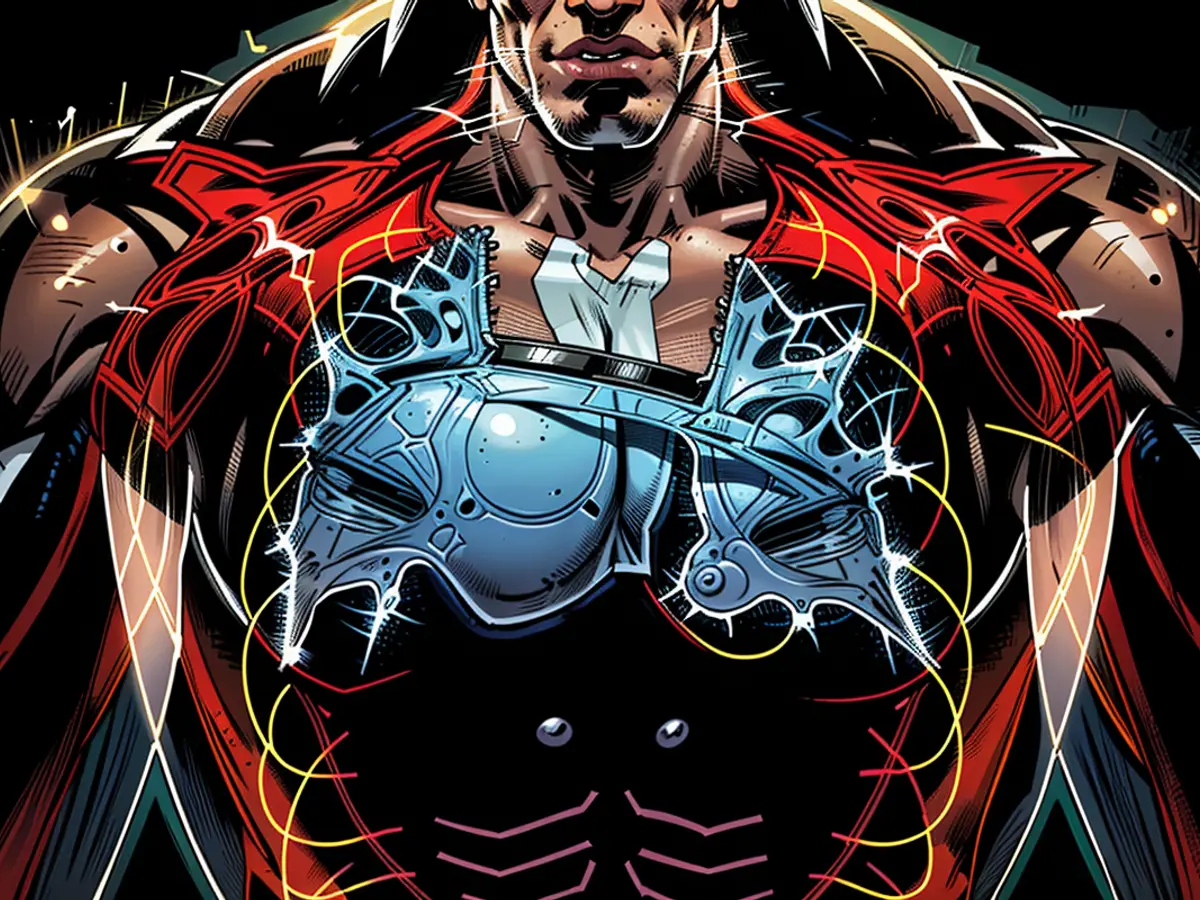Energy beverages may lead to sudden heart failure.
As a morning guard, during sports games, or at a night out: Energy drinks are widespread - especially among the younger crowd. Yet, a recent study reveals the dangers they bring. In some cases, they could even be fatal.
These colorful, sweet concoctions offer a quick pick-me-up: Energy drinks. Young people, in particular, are drawn to these liquid stimulants. According to the European Food Safety Authority (EFSA), around 60% of German youngsters aged 10 to 18 have downed energy drinks, and 37% of them drank them while boozing. But with popularity comes peril, as revealed by a recently-published study in the journal "Heart Rhythm".
Doctors at the Minnesota-based Mayo Clinic discovered that a fifth of individuals who survived a sudden cardiac arrest had gulped energy drinks moments prior to the incident. These patients were young, with an average age of 29, the youngest being 21 and the oldest 37.
The experts acknowledge this as just preliminary evidence and suggest more inquiries for decisive conclusions. The findings, however, are "troubling." "Although the relative risk is low and the absolute risk of sudden death after consuming an energy drink is even lower, people with known genetic heart issues should weigh the pros and cons of consuming such beverages," warns study leader Michael Ackerman, a cardiologist leading a research organization focusing on pinpointing the genetic triggers of sudden cardiac arrest.
Worrying Case Studies
The energy drink market has swelled in recent times, actively targeting youth and young adults. Besides the various additives found in these potions, the ingestion of large amounts of caffeine, prevalent in most energy drinks, can also be hazardous.
In the USA, a 16-year-old breathed his last in 2017 after drinking vast amounts of caffeinated beverages. The postmortem showed caffeine had crushed his heart rhythm in this otherwise healthy teenager. Scads of international reports link these beverages to severe occurrences, such as sudden cardiac arrest.
In 2021, a 21-year-old fellow was found to have both heart and kidney failure, a consequence of a daily intake of four cans of energy drinks for two years. His heart issues showed improvement after ceasing the energy drink consumption and undergoing treatment. A 24-year-old male, meanwhile, demonstrated signs of heart damage, including an enlarged left ventricle and trouble with blood circulation, after consuming eight to ten cans of energy drinks for two weeks.
Eye-opening Amounts of Caffeine
Those energy drinks are laden with caffeine, a threat to health. For instance, a 250ml can of Red Bull packs 80mg of caffeine, roughly equivalent to three cups of coffee. This massive caffeine intake could lead to assorted health woes, such as heart rhythm disturbances, elevated blood pressure, and jitters.
Energy drinks, typically, are also laden with sugar, which fuels weight gain and tooth decay. The consumption of energy drinks can also lead to dehydration, as they're heavy on caffeine and goad the production of urine. This danger is amplified for athletes, already at risk of dehydration through their physical exertion.
Moreover, energy drinks often house other hazardous ingredients, including taurine, guarana, and ginseng. These components have the potential to wreak havoc on the heart, kidneys, and liver.
Hence, it's crucial to beware of the potential hazards of slurping energy drinks, particularly for those with genetic heart conditions or susceptible to cardiovascular disease. It's also advised to consume them sparingly.
Some renowned energy drink labels pack Ca. 300mg of caffeine per serving, thrice the quantity in a regular cup of java, according to Dr. Ackerman and his associates. "Prior studies have shown that more than ten cups of coffee daily can spark sudden death," he knocks. "However, the connection between caffeine and taurine is still murky: taurine has been demonstrated to suppress heart rhythms in rabbit hearts." And guarana, another component of energy drinks, is again implicated in instigating arrhythmias.
"The study does not assert energy drinks cause these near-death episodes," clarifies cardiologist Majid Basit, not associated with the study. "Yet, extensive research has suggested that repeated and excessive consumption of substances like energy drinks and hooch can trigger conditions like heart failure, stroke, and erratic heart rhythms, such as atrial fibrillation."
"The study doesn't confirm energy drinks trigger these life-threatening occurrences," stressed cardiologist Basit, not related to the research. "However, it's been demonstrated that imbibing unlimited quantities of energy drinks and booze can cause other heart diseases, such as heart attacks or cardiac arrhythmias."
It's peculiar how sudden cardiac arrest can strike individuals who carry a hidden risk, without even knowing it. This risk can stem from factors such as genetic predispositions, heart valve diseases, or congenital heart defects. Basit reveals that around 2 in every 100,000 people could be at risk due to a disruption in their heart's electrical system, leading to this life-threatening event.
Read also:
Given the health risks associated with energy drinks, it's important for individuals, especially young people, to be aware of the impact of these beverages on their overall health. This includes understanding the potential impact on their education, as excessive consumption of energy drinks can lead to increased heart rate, jitters, and sleep disturbances, which might negatively affect concentration and learning ability. Moreover, poor nutrition due to frequent energy drink consumption may hinder optimal brain function, affecting academic performance.
Furthermore, the impact of energy drinks on health extends beyond education to other aspects of wellbeing. Regular consumption of energy drinks, high in sugar and caffeine, can contribute to various health issues such as obesity, diabetes, and dental problems. Additionally, the high sodium content may lead to hypertension, further putting individuals at risk for heart disease. Therefore, promoting a balanced diet that includes nutrient-rich foods and avoiding excessive energy drink consumption can contribute to preventing these health issues and maintaining overall health and wellness.







